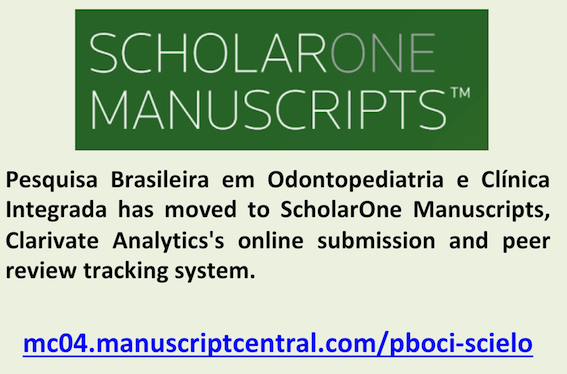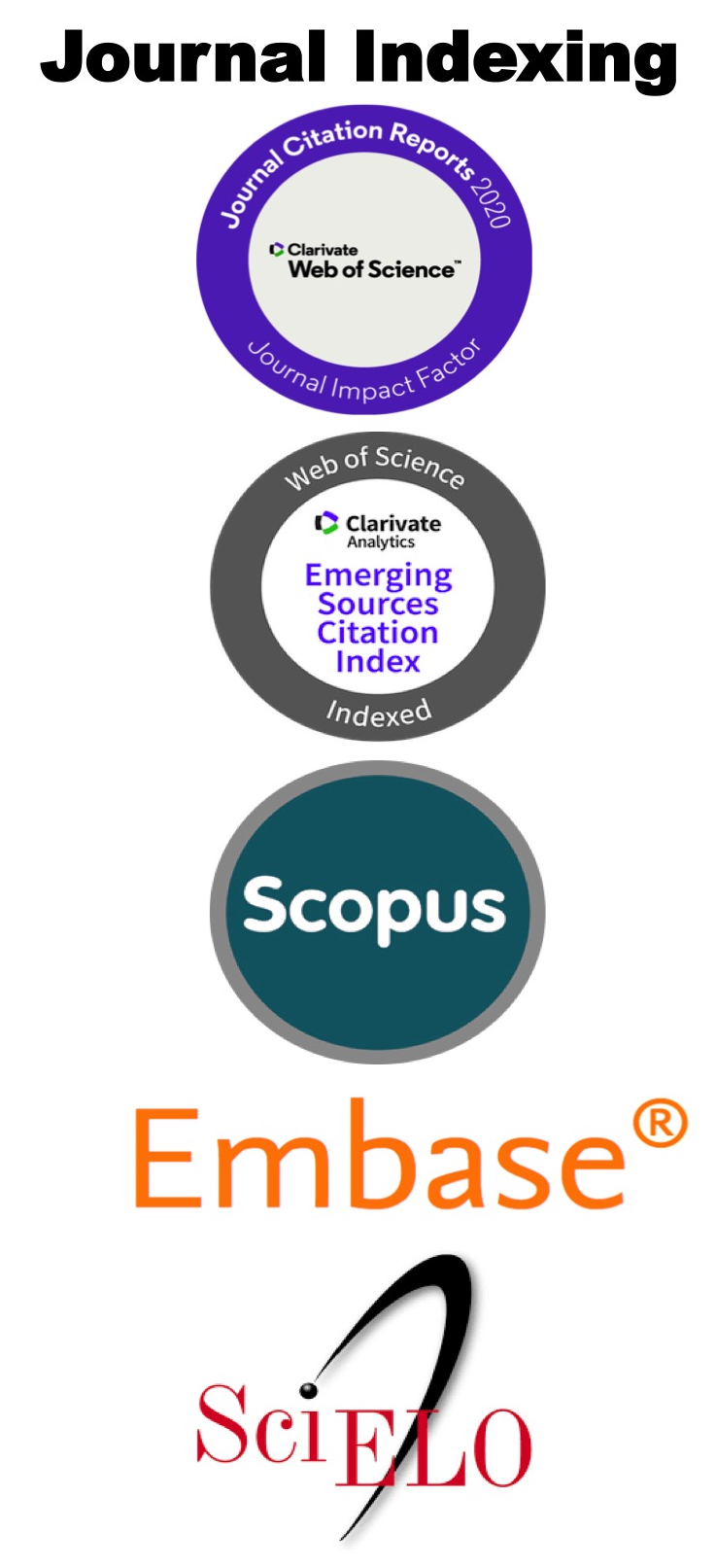Are We Hearing Right? The Negative Impact of New SARS-CoV-2 Preventive Measures and Prolonged Use of Treatment Modalities during Orthodontic Treatment
Keywords:
Orthodontics, Hygiene, Occupations, HearingAbstract
Since the dental treatment involves the use of various instruments and machines, there is ample presence of both distracting as well as destructive noise, and these are defined based on various parameters. With an increase in safety measures incorporated into dental practices, such as extra-oral suction devices and respirators, there has also been a corresponding rise in noise levels usually present in a clinic. Previous clinical experiments and trials have shown that the noise in a dental office can permanently bring about hearing damage. In addition to this, working with added safety measures during the pandemic, such as the use of personal protective equipment, respirators, and face shields can decrease operator efficiency and the ability to communicate normally. Dentistry has already been demonstrated to be one of the most hazardous occupations because of the high risk of infections. An Orthodontist must protect their eyes and mouth from potentially hazardous situations and the ears to prevent hearing damage.References
Ayatollahi J, Ayatollahi F, Ardekani AM, Bahrololoomi R, Ayatollahi J, Ayatollahi A, et al. Occupational hazards to dental staff. Dent Res J (Isfahan) 2012; 9(1):2-7. https://doi.org/10.4103/1735-3327.92919
Trenter SC, Walmsley AD. Ultrasonic dental scaler: associated hazards. J Clin Periodontol 2003; 30(2):95-101. https://doi.org/10.1034/j.1600-051x.2003.00276.x
Dierickx M, Verschraegen S, Wierinck E, Willems G, van Wieringen A. Noise disturbance and potential hearing loss due to exposure of dental equipment in flemish dentists. Int J Environ Res Public Health 2021; 18(11):5617. https://doi.org/10.3390/ijerph18115617
Shetty R, Shoukath S, Shetty SK, Dandekeri S, Shetty NHG, Ragher M. Hearing assessment of dental personnel: a cross-sectional exploratory study. J Pharm Bioallied Sci 2020; 12(Suppl 1):S488-S494. https://doi.org/10.4103/jpbs.JPBS_145_20
Ma KW, Wong HM, Mak CM. Dental environmental noise evaluation and health risk model construction to dental professionals. Int J Environ Res Public Health 2017; 14(9):1084. https://doi.org/10.3390/ijerph14091084
Garner GG, Federman J, Johnson A. Noise induced hearing loss in the dental environment: An audiologist's perspective. J Georgia Dent Assoc 2002; 17-9.
Al-Rawi NH, Al Nuaimi AS, Sadiqi A, Azaiah E, Ezzeddine D, Ghunaim Q, et al. Occupational noise-induced hearing loss among dental professionals. Quintessence Int 2019; 50(3):245-50. https://doi.org/10.3290/j.qi.a41907
Goncalves CG, Santos L, Lobato D, Ribas A, Lacerda AB, Marques J. Characterization of hearing thresholds from 500 to 16,000 hz in dentists: a comparative study. Int Arch Otorhinolaryngol 2015; 19(2):156-60. https://doi.org/10.1055/s-0034-1390138
Theodoroff SM, Folmer RL. Hearing loss associated with long-term exposure to high-speed dental handpieces. Gen Dent 2015; 63(3):71-6.
Bali N, Acharya S, Anup N. An assessment of the effect of sound produced in a dental clinic on the hearing of dentists. Oral Health Prev Dent 2007; 5(3):187-91.
Colonna A, Siciliani G, Lombardo L. Orthodontic emergencies and perspectives during and after the COVID19 pandemic: the Italian experience. Pesqui Bras Odontopediatria Clín Integr 2021; 21:e0181. https://doi.org/10.1590/pboci.2021.027
Cotrin P, Peloso RM, Pini NIP, Oliveira RC, de Oliveira RCG, Valarelli FP, et al. Urgencies and emergencies in orthodontics during the coronavirus disease 2019 pandemic: Brazilian orthodontists' experience. Am J Orthod Dentofacial Orthop 2020; 158(5):661-7. https://doi.org/10.1016/j.ajodo.2020.06.028
Kumar PR, Sharma P, Kalavathy N, Kashinath KR. Hearing damage and it’s prevention in dental practice. J Dent Sci Res 2011; 2(2):1-5.
Guo F, Tang B, Qin D, Zhao T, Su YX, McGrath C, et al. The impact of the COVID-19 epidemic on orthodontic patients in China: an analysis of posts on Weibo. Front Med 2020; 7:577468. https://doi.org/10.3389/fmed.2020.577468
Shamardi SS. The deafening silence in dentistry. Available from: https://www.dentaleconomics.com/science-tech/oral-medicine-anesthetics-and-the-oral-systemic-connection/article/14069090/the-deafening-silence-in-dentistry. [Accessed on October 1, 2021].
Fernandes JC, Santos LN, Carvalho HJM. Evaluation of acoustic performance of a dental office. Produção 2011; 21(3):7-20. https://doi.org/10.1590/S0103-65132011005000030
Cheng L, Chen L, Xiao L, Zhang J, Cheng Y, Zhou L, et al. Problems and solutions of personal protective equipment doffing in COVID-19. Open Med 2020; 15(1):605-12. https://doi.org/10.1515/med-2020-0172
Bahannan S, El-Hamid AA, Bahnassy A. (1993). Noise level of dental handpieces and laboratory engines. J Prosthe Dent 1993; 70(4):356-60. https://doi.org/10.1016/0022-3913(93)90222-a
Messano GA, Petti S. General dental practitioners and hearing impairment. J Dent 2012; 40(10):821-8. https://doi.org/10.1016/j.jdent.2012.06.006
Elmehdi HM. Noise levels in UAE dental clinics: Health impact on dental healthcare professionals. J Public Health Front 2013; 2(4):189-92. https://doi.org/10.5963/PHF0204002
American Dental Association. Safety tips to prevent hearing loss. Available from: https://success.ada.org/en/wellness/safety-tips-to-avoid-hearing-loss. [Accessed on October 1, 2021].
Mojarad F, Massum T, Samavat H. Noise levels in dental offices and laboratories in Hamedan, Iran. Front Dent 2009; 6(4):181-6.
Al-Omoush SA, Abdul-Baqi KJ, Zuriekat M, Alsoleihat F, Elmanaseer WR, Jamani KD. Assessment of occupational noise-related hearing impairment among dental health personnel. J Occup Health 2020; 62(1):e12093. https://doi.org/10.1002/1348-9585.12093
Goldberg JM, Kelsall T, Behar A, Malek P. CSA Z1007: A new management standard from the Canadian Standards Association for the management of hearing loss prevention programs. Can Acoust 2016; 44(3):1-2.
Butera A, Maiorani C, Natoli V, Bruni A, Coscione C, Magliano G, et al. Bio-inspired systems in nonsurgical periodontal therapy to reduce contaminated aerosol during COVID-19: a comprehensive and bibliometric review. J Clin Med 2020; 9(12):3914. https://doi.org/10.3390/jcm9123914
Lanteri V, Segù M, Doldi JDH, Butera ADH. Pre-bonding prophylaxis and brackets detachment: an experimental comparison of different methods. Int J Clin Dent 2014, 7(2):191-7.
Pithon MM, Santos Fonseca Figueiredo D, Oliveira DD, Coqueiro RS. What is the best method for debonding metallic brackets from the patient's perspective? Prog Orthod 2015; 16:17.
https://doi.org/10.1186/s40510-015-0088-7
Karobari MI, Assiry AA, Mirza MB, Sayed FR, Shaik S, Marya A, Venugopal A, Alam MK, Horn R. Comparative evaluation of different numerical pain scales used for pain estimation during debonding of orthodontic brackets. Int J Dent 2021; 2021:6625126. https://doi.org/10.1155/2021/6625126
Downloads
Published
How to Cite
Issue
Section
License
Copyright (c) 2022 Pesquisa Brasileira em Odontopediatria e Clínica Integrada

This work is licensed under a Creative Commons Attribution-NonCommercial 4.0 International License.



